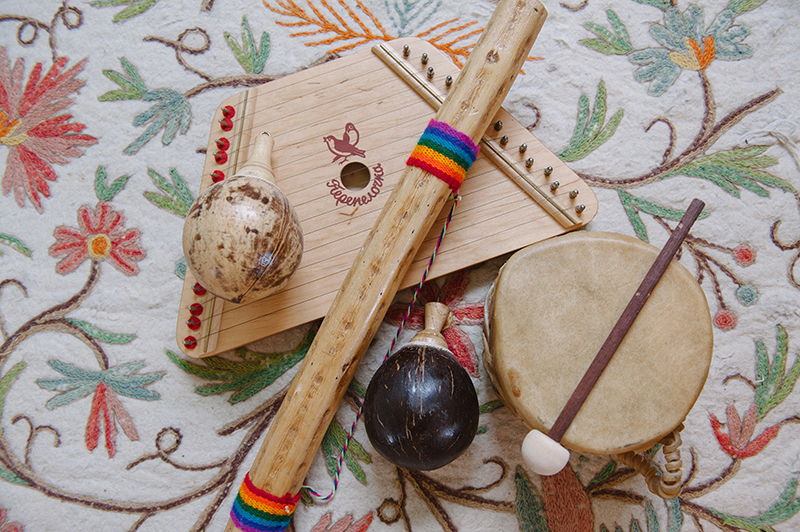When kids reach preschool age, they begin to make sense of what they see, feel and experience by using their minds and bodies. They observe things and gather information, build theories and test them out, refine their thoughts through interaction with adults and peers. At such a young age, kids burn off a plenty of energy and satisfy their thirst for knowledge in every way. It should be the right time for parents to put their children in extracurricular activities, which guide kids’ energies in the right direction.
Extra curricular activities are essential not just to develop child’s skills in various areas. They help kids build self-esteem and confidence and improve social skills. Through playful activities in small groups, children challenge themselves to try new things, learn how to be a part of a team and explore more about their talents. When children are confident, they take pride for their achievements and make more huge strides – physically, emotionally and intellectually.
Overscheduling: how much is too much?
There is a plethora of developmental activities for preschoolers: educational classes, creative activities, sports, physical classes, martial arts and many more. Certainly, the benefits that they bring to children are enormous, but parents should know how much is enough for their kids. Even if a child is curious and active by nature, there should be a robust balance between extracurricular activities and his/her natural rhythms.
Picking up a couple of activities that appeal to a child is a great choice. At the beginning, parents may even limit activities to one or two, and see how children cope with them. It is a warning sign, when children feel stressed and overwhelmed or they experience poor appetite or apathy, as well as parents themselves who can be tired of getting kids from place to place. Finding a healthy balance is the right way to let kids’ development process go naturally.
It is important for parents to listen to their kids, when they show interest in certain activities. For example, a child who enjoys dancing is perfectly suited to some creative activities rather than active sports. What is more, there should be no pressure upon a kid, if he or she isn’t passionate about the chosen activity. It can have a bad influence on child’s self-esteem and confidence in the future.
The role of parents in kids’ extracurricular development cannot be underestimated. Their involvement in such ways as coaching, fundraising, transportation is a good way to help their kids establish close relationships with teachers and get them interested in the activities for a long while.
Choosing a healthy balance
At Kids Collective, extracurricular activities for preschoolers are fun and entertaining. Kids may not even realize that they gain valuable skills by taking part in them. While children don’t realize they are learning, they don’t feel pressure that school students do. As there are no boundaries on children’s behavior, kids are free to express their potential by following their intrinsic needs and interests.
Here is a perfect set of extracurricular activities to enroll a kid for all-rounded and balanced development:
Yoga
Yoga for children, as you might think, is not a set of poses that twist kids’ bodies into a pretzel. Rather, it is a playful sport activity that helps them feel more comfortable with their bodies, and get to know who they are inside. During yoga classes, kids enjoy imitating after animals, which develops their motor skills, balances energy and encourages a healthy lifestyle. Practising outside yoga is especially good for children’s health, as they spend time in the fresh air and get closer to nature.
Cooking
Cooking classes instill a love in kids for healthy eating and provides them with extra fun, as they engage in various foodie activities such as preparing snacks, making dough, mixing ingredients. Little culinarians can express their most ambitious cooking ideas and eat what they have prepared later. Cooking is not just fun, but a great way for kids to create their own healthy recipes and broaden their culinary horizons.
Gardening
Kids love gardening, as it opens up a plenty of opportunities to explore by doing. Children enjoy digging and playing in dirt. There is no any other better way to help children learn about the world of plants and animals as well as environment as such then by providing them with their own garden space. Kids experience satisfaction and sustain interest, as they watch seeds they have planted sprout – and at the same time learn about the great cycle of life. Through gardening, they also learn to be respectful for the environment and take care of all living things in nature.
Music
Children start learning music since birth, as they listen to their mother’s voices and hear sounds around them. In an early childhood, kids’ innate music potential is actively developing. The more musical sounds children hear, the richer their musical experience is. During music classes, children sing songs, participate in rhythm games and get acquainted with various musical instruments presented by professional musicians. The main goal is to raise children’s interest in music through playful, entertaining musical activities, which will lay foundation for music enjoyment in everyday life.
Spanish
Learning a second language gives boost to child’s cognitive activity. As kids memorize words and adopt new sounds, they increase creativity and flexibility in mind. Moreover, by taking adventures in the foreign language, children get to know more about their native tongue. In other words, they back up concepts they have grasped in the other language. Spanish is considered to be a good foundation for mastering other languages. It is taught through play-like activities – songs, stories, poems, games and many more. As classes end, children become self-confident and can apply their newly acquired linguistic skills in real-life situations without embarrassment.
Caring for pets
Whether it is a dog, a cat or a little fish in a bowl, kids enjoy companionship of various animals. Caring for pets is a source of emotional development for children, as they build self-confidence and learn empathy and compassion. Pets can also provide kids with a kind of practice in social development, while they have fun and play together. When taking a pet into the family is not a good decision, interaction with them during extracurricular activities is a nice way to grow up a caring and thoughtful child.
The idea of keeping children enrolled in extracurricular activities comes from parents’ desire to uncover their innate talents and help them become well-rounded grownups. Even though kids don’t feel they are actually learning, they have fun and acquire crucial skills that influence their success in future. Here we mean teamwork, leadership, self-discipline, communication skills, respectful attitude towards community and living being.





